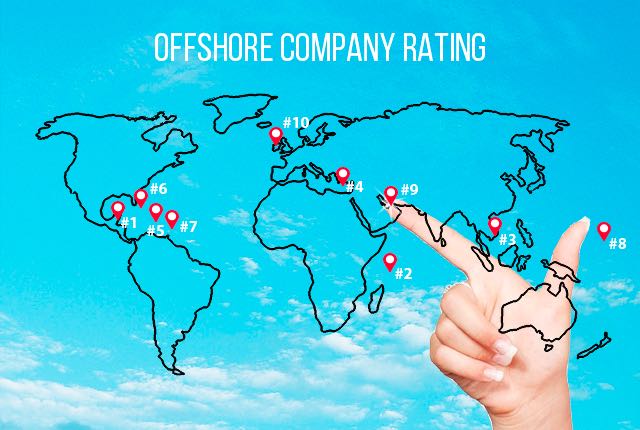Mastering Offshore Company Formation: Crucial Actions and Standards
Mastering Offshore Company Formation: Crucial Actions and Standards
Blog Article
Offshore Company Development Demystified: Trick Considerations and Ideal Practices
Browsing the intricacies of overseas business formation requires a keen understanding of various elements that can substantially affect the success and legitimacy of such undertakings. From picking the ideal lawful jurisdiction to thoroughly evaluating the tax implications, each step holds vital importance at the same time. Corporate structuring, conformity with governing demands, and cautious factor to consider of banking and financial facets are all key components that require thoughtful deliberation. As the complexities of developing an offshore firm unravel, a critical method guided by best methods becomes critical in ensuring a smooth and legally sound procedure.
Legal Territory Selection
Choosing the appropriate legal territory is an important decision when establishing an overseas company, as it substantially impacts the governing framework within which the entity will certainly run. Different territories offer differing levels of tax efficiency, regulative demands, personal privacy protections, and political stability. The choice of jurisdiction need to line up with the certain objectives and needs of the offshore business.

Additionally, the regulative setting of a territory is essential. Some territories have stringent financial policies and compliance demands, which can be challenging for sure sorts of businesses. On the other hand, more lax regulative environments might supply adaptability but could also present risks in terms of credibility and legitimacy.
Tax Ramifications Evaluation
Taking into consideration the tax ramifications is a basic aspect of establishing an overseas business as it straight influences the financial structure and operational approaches of the entity. One of the key reasons organizations opt for offshore business development is to profit from favorable tax routines. Functioning closely with tax advisors or experts that specialize in international tax matters can give useful understandings and advice in structuring the overseas firm in a tax-efficient fashion.
Business Framework Preparation
Effective corporate structure planning plays a pivotal role in the successful establishment and operation of an offshore company. When structuring an overseas entity, vital variables such as property defense, tax obligation effectiveness, and functional adaptability needs to be meticulously taken into consideration. One usual technique is to develop a holding business in a jurisdiction with beneficial tax laws to hold the properties of the running business, which may be located in a different territory for functional functions. This separation can help mitigate risks and enhance tax preparation approaches.

Additionally, the selection of corporate structure, whether it be a restricted responsibility business, a company, or a trust, can significantly affect the total success of the overseas venture. click to investigate By very carefully intending the corporate framework, overseas companies can enhance their operational effectiveness, safeguard their properties, and enhance their tax responsibilities.
Conformity and Regulative Requirements
What are the crucial compliance and regulatory requirements connected with establishing and running an overseas business? When setting up an overseas business, it is essential to adhere to the governing frameworks of both the offshore territory and the home country of the company proprietors.
Moreover, understanding and following international regulations, such as anti-money laundering (AML) and know your customer (KYC) needs, are necessary for overseas firms to avoid illicit tasks. Due persistance in confirming the identities of advantageous owners and making sure transparency in business procedures are crucial components of governing compliance.
To navigate these intricacies efficiently, engaging with economic and lawful professionals with competence in offshore regulations is very recommended. Remaining upgraded on changing governing landscapes and proactively attending to compliance concerns can help overseas business run lawfully and ethically while optimizing their company potential.
Banking and Monetary Factors To Consider
When establishing an offshore firm, cautious focus to banking and economic factors to consider is paramount for making certain operational performance and regulative conformity. Picking the best banking partner is vital, as it can influence the firm's everyday purchases, access to capital, and overall financial stability. Offshore companies frequently choose financial institutions in territories understood for their stability, financial infrastructure, and beneficial policies. It is vital to think about aspects such as the bank's credibility, variety of services provided, fees, and its adherence to international financial criteria.
In addition, recognizing the financial regulations in both the offshore territory and the home nation is vital to avoid any kind of lawful issues. Some overseas territories have rigorous financial secrecy laws, which may impact the circulation of info between the firm, its investors, and the bank. Conformity with anti-money laundering (AML) and understand your customer (KYC) laws is likewise important to stop financial crimes and maintain an excellent standing with regulative authorities. By thoroughly navigating the financial and economic landscape, offshore firms can establish a strong monetary foundation for their procedures.

Conclusion
In conclusion, overseas company development involves cautious factor to consider of legal territory, tax effects, business structure, conformity, and financial considerations. On the whole, comprehensive preparation and adherence to next financial and lawful standards are critical for a successful overseas firm formation process.
Effective))))
Considering directory the tax obligation ramifications is an essential aspect of developing an offshore firm as it directly influences the economic framework and functional techniques of the entity. Working carefully with tax advisors or consultants who specialize in global tax obligation issues can supply useful understandings and guidance in structuring the overseas firm in a tax-efficient way. One common approach is to develop a holding firm in a jurisdiction with beneficial tax regulations to hold the possessions of the operating firm, which might be located in a different territory for functional purposes. When establishing up an overseas business, it is vital to stick to the regulatory frameworks of both the offshore territory and the home nation of the firm proprietors.In final thought, overseas business development entails careful consideration of legal jurisdiction, tax obligation implications, business structure, conformity, and banking considerations.
Report this page